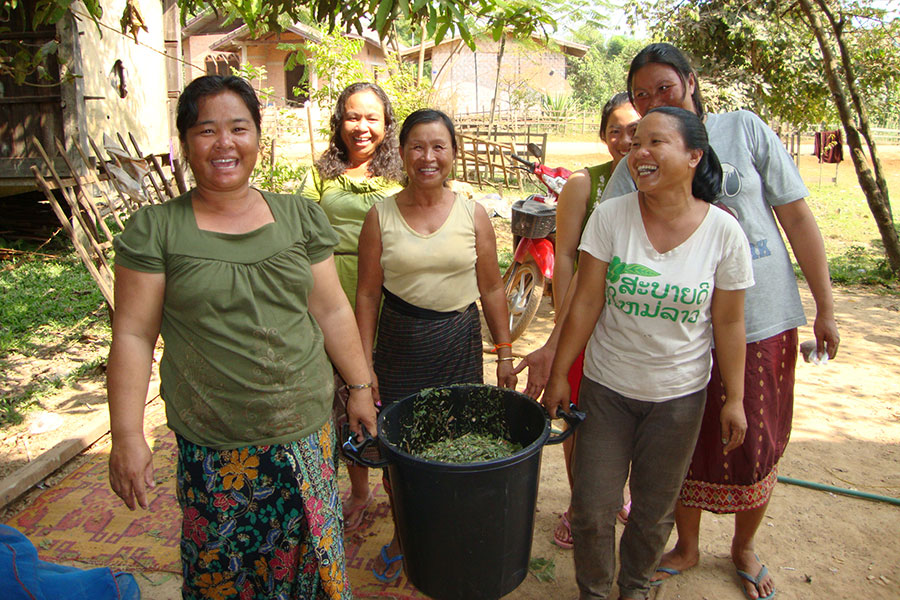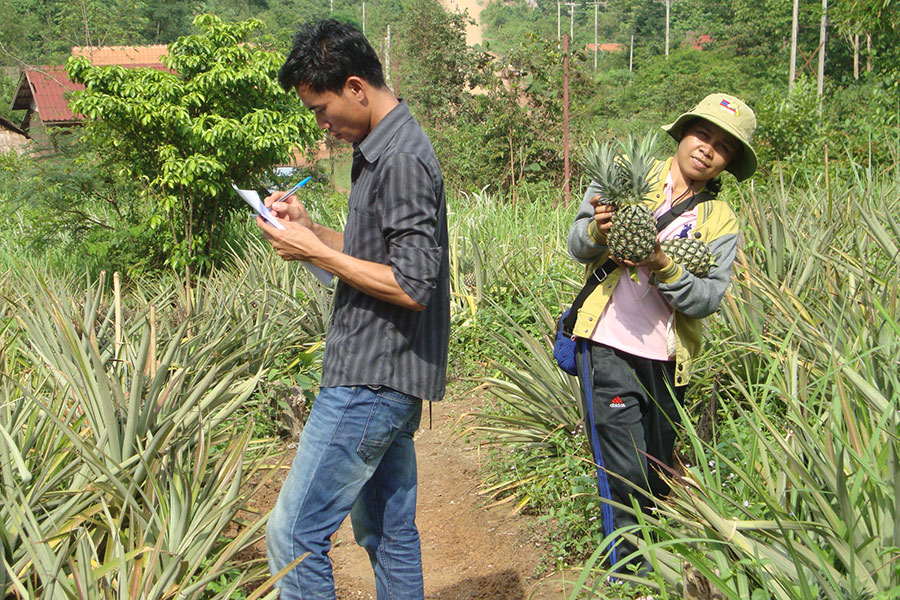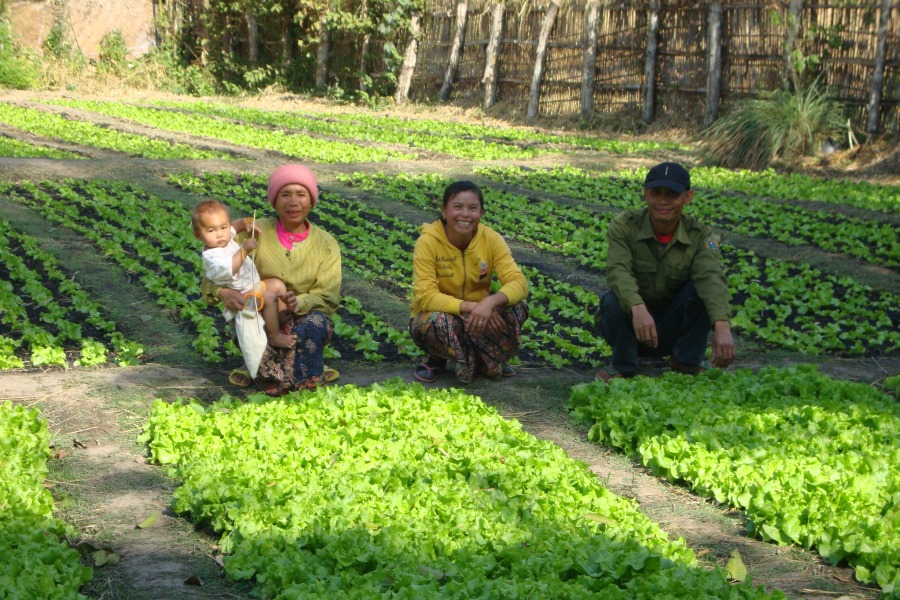Farmers’ Clubs
The approach
The Farmers' Clubs approach is a concept developed and tested by Humana People to People all over the world. HPP Laos implemented a Farmers’ Clubs project in two villages of Bolikhan District, Bolikhamxay Province, working with 1,000 farmers and their families from 2015 to 2017. A large project in six Districts of Khammouane Province has commenced in early 2019, engaging another 5,000 vulnerable households. This Nutrition and Food Security project is funded by the European Union and is jointly implemented by Health Poverty Action, Humana FPP and the Khammouane Province Health Office.
The Farmers' Clubs approach organises small-scale farmers in groups of around 50 for them to join forces and share knowledge as well as resources. As a rule, half of all farmers HPP Laos works with are women, thus enabling them to equally participate in the project and its benefits. The overall objective of Farmers’ Clubs is to further sustainable and climate-smart agricultural production, improve families’ own nutrition through a more balanced diet as well as creating a crop surplus for sale. In their groups, farmers learn how to work together more effectively, how to bargain for lower prices as a collective, and how to support each other at all stages of the production cycle. They meet and receive training once a fortnight. In this way, Farmers' Clubs evolve to become self-sustaining and mutually supportive networks of farmers which last beyond the duration of projects. HPP Project Leaders are either from or live in the communities they work with. They can thus establish close relationships of trust with the farmers which enables them to provide the best possible support. The Farmers' Clubs projects also work in close cooperation with the Department of Agriculture and Forestry at District and Province levels.
The rationale
- Food security including balanced nutrition as well as community resilience are fostered. Farmers and their families become more confident and effective in producing their own healthy food which strengthens the community as a whole.
- By producing a crop surplus, farmers can additionally generate income for their families and create a savings safety net for rainy days.
- Climate change adaptation: Even though Laos is a landlocked country, it is already affected by changing climate patterns as severe floodings during the 2018 rainy season showed. Especially farmers are very vulnerable to the effects of rising temperatures and more extreme seasons. The HPP Laos agriculture team work with farmers and their families to encourage crop diversification and preservation of food to ensure a balanced, nutritious diet all year round. Conservation agriculture is also promoted, working towards improved soil conditions by rotating crops, covering soil (mulching), adopting intercropping methods which reduce the necessity to use chemicals, and using animal manure and compost as natural fertilisers.
- Climate change mitigation: Deforestation has been a major environmental issue in Lao PDR for decades. Forest cover as well as forest quality have severely deteriorated. While forests in Lao PDR hold an estimated 1,074 million tonnes of CO2, deforestation contributes to producing emissions - and agriculture is one of the drivers of deforestation. HPP Laos therefore works with farmers on alternative farming methods, preserving forests by for instance adopting agroforestry elements such as cultivating rattan and bamboo as understory crops.








